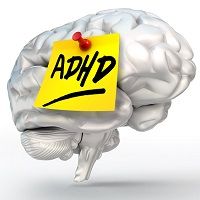Defining ADHD Symptoms into Adulthood
Childhood symptoms of attention deficit hyperactivity disorder (ADHD) persist into adulthood in as many as 60% of patients, according to findings published in the Journal of Child Psychology and Psychiatry.

Childhood symptoms of attention deficit hyperactivity disorder (ADHD) persist into adulthood in as many as 60% of patients, according to findings published in the Journal of Child Psychology and Psychiatry.
Researchers from Florida International University included nearly 600 ADHD patients in their longitudinal study in order to documents how symptoms of ADHD continue into adult life for patients. The researchers added that other longitudinal studies estimate the persistence between 5% and 75%, and they wanted to narrow it down. The researchers used almost 300 classmates as local controls in the study, of which 241 were followed up in adulthood (after about 16 years) using parent and self reports of symptoms and impairment rating scales as well as structured interviews.
When measured by parental reports rather than self reports, the researchers found that the ADHD symptom persistence rates were higher. The study authors additionally determined that the structured interviews, instead of the rating scales, were better to determine the continuance of childhood ADHD symptoms into adulthood. Sixty percent of the ADHD patients showed symptoms continued into adulthood while 41% met both symptom and impairment criteria for ADHD in adulthood, the researchers wrote.
Study author Margaret Sibley, PhD, explained that if the typical definition of childhood ADHD is applied to adults for diagnostic purposes, many cases would be missed. The symptoms of ADHD are different in adults than in children, she said.
“The way you diagnose ADHD can lead to different conclusions about whether or not an adult still has the disorder that started in childhood,” Sibley said in a press release. “First, if you ask the adult about their continued symptoms, they will often be unaware of them; however, family members or others who know them well often confirm that they still observe significant symptoms in the adult. By asking a family member about the adult's symptoms and using adult based definitions of the disorder, you typically find that around half of children with moderate to severe ADHD still show significant signs of the disorder in adulthood."
Related Coverage:
Prenatal Diets Could Affect ADHD Development in Offspring
Manisha Madhoo: Moving ADHD Treatment Forward
Heredity an Important Factor in ADHD, Alcoholism, and Binge Eating